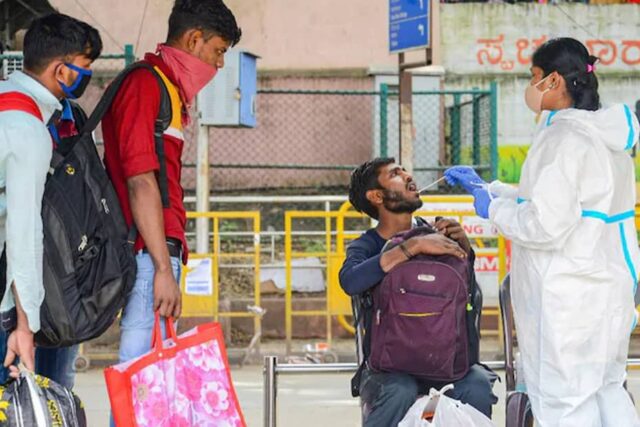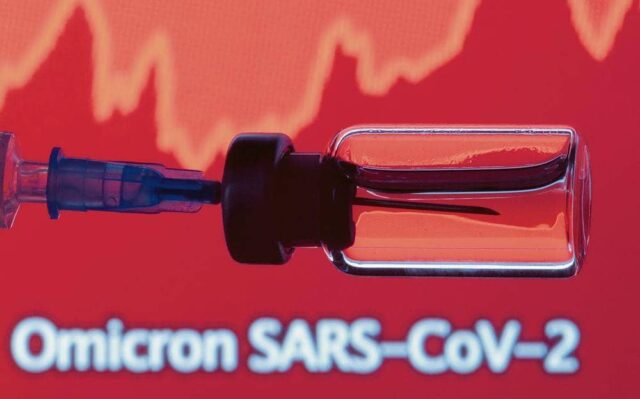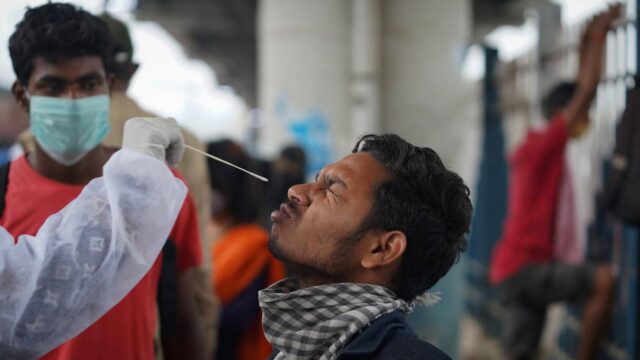At the end of the Delta Wave, the world faced another threat in the form of Omicron, another variant of the COVID-19 virus. To deal with the exponential growth of the new variant, the Government of India has introduced a third booster dose.
However, there are several concerns and questions about the introduction of this booster dose, especially when a fraction of the population hasn’t even taken the second dose of the vaccine.
The Introduction Of The Dose
Addressing the nation on the 25th of December, 2021, Prime Minister Narendra Modi announced the introduction of the third booster dose to inoculate frontline workers and senior citizens.
“Corona workers, healthcare, and frontline workers have a huge contribution in keeping the country safe…Therefore, from the point of view of precaution, the government has decided to start administering ‘Precaution Doses’ for healthcare and frontline workers,” said the Prime Minister while also announcing vaccines for children and adolescents aged 15-18 from January 3rd.
The third batch should be the same vaccine taken in the first two doses. The Central government has clearly stated that there shall be no mix and match. This was done in a country already feeling the crisis of the rising number of Omicron cases.
Vaccination Begins
On the 10th of January, 2022, vaccination began for the third booster dose in India for healthcare workers and senior citizens with comorbidities.
Approximately 5.75 crore people are available for vaccination. About 2.75 crores of them are senior citizens above the age of sixty. Among the rest, 1 crore is healthcare workers, and 2 crore is frontline workers. As per the NDTV, on the first day, about 10 lakh cases were administered till 8 PM.
Also Read: Omicron Cases Force Trains In West Bengal To Come To An Early Halt: A Blessing Or Curse?
The Problem Variant
In spite of the vaccination, the country is reeling under the attack of the new variant. According to the Hindustan Times, India saw the highest hike in the spread of COVID-19 in 236 days with 2,47,417 cases on the 13th of January.
This is a steep growth of 27% from the cases recorded only a day before. India also recorded the highest single-day spurt in 620 cases of the Omicron variant. The total of Omicron cases recorded in the country on the same day is 5,488.
Even though the mortality rate of the variant is dismal compared to its stronger predecessors, the infections are quickly rising in the country, and India is looking straight at the storm of the third wave of Covid-19.
The Central and State Governments are trying to contain the situation by imposing partial lockdown. Moreover, the problem gains more ground especially as only 66% of the total population of the country has been administered with the two doses of vaccine.
The vaccine is being distributed to several cities in an effort to minimize the threat of infection especially among senior citizens with comorbidities.
As Dr. Rommel Tickoo, Director- Internal Medicine, Max Healthcare explains, “boosters are being recommended because data is showing that protection against mild and moderate COVID-19 via the initial vaccine series declines over time – particularly for those who were vaccinated some time ago.”
Added to that is the concern about the new COVID-19 variant, Omicron. Research suggests that getting a booster dose can decrease your risk of infection and severe illness with COVID-19. Those with comorbidities and immunocompromised status are a high risk for COVID-19 related complications and would really benefit from a booster shot.”
The Emory University Study
According to the Indian Express, Bharat Biotech announced on the 12th of January, that a study at the Emory University has asserted that a booster dose of Covaxin given six months after the initial two doses has the capacity to neutralize Coronavirus’s Omicron and Delta variants.
Mehul Suthar, an assistant professor at the Emory Vaccine Centre of the university in Atlanta, US, was the primary presence behind this study.
According to him, “Data from this preliminary analysis show individuals receiving a booster dose of Covaxin have a significant immune response to both the Omicron and Delta variants. These findings suggest that a booster dose has the potential to reduce disease severity and hospitalizations.”
The booster dose is being prepared to counter the overwhelming spread of Omicron throughout the world. For now, the Indian government is focusing on senior citizens and healthline workers.
It must be remembered that the virus spreads on a community basis and thus, this effort will only be effective if a majority of the population can be vaccinated and not before. It remains to be seen how the vaccine adapts to the virus and how effective it is in the years to come.
Image Source: Google Images
Sources: Times of India, BBC News, The Wire +More
Find the blogger: @das_roy13
This Post Tagged Under: Vaccine for covid, active cases in India, booster doses, coronavirus infection, COVID-19, Delta variant, Omicron variant, third wave, PM MODI
Other Recommendations:
India Successfully Achieves Tap Water Connection For 45% Of Rural India




































